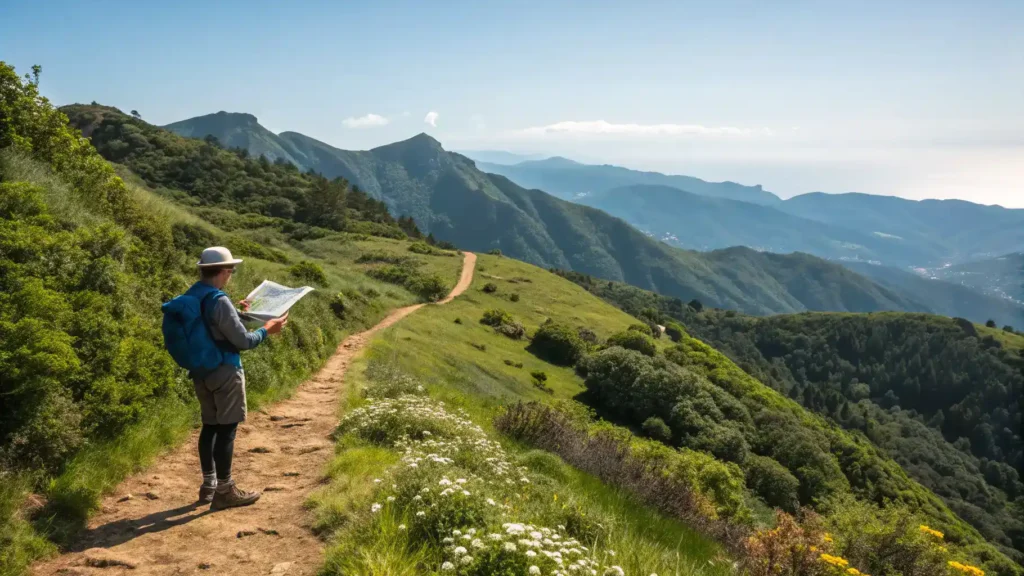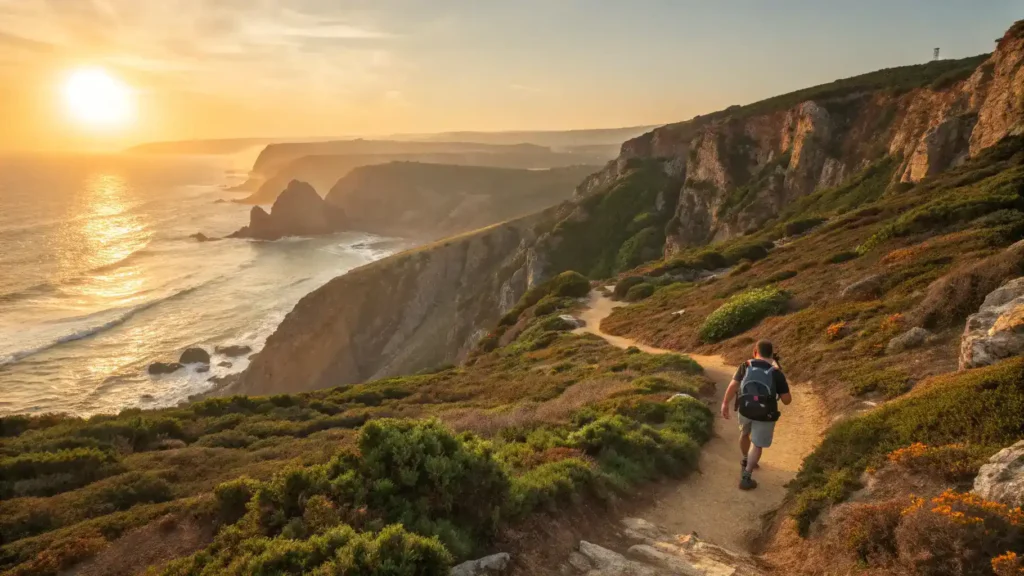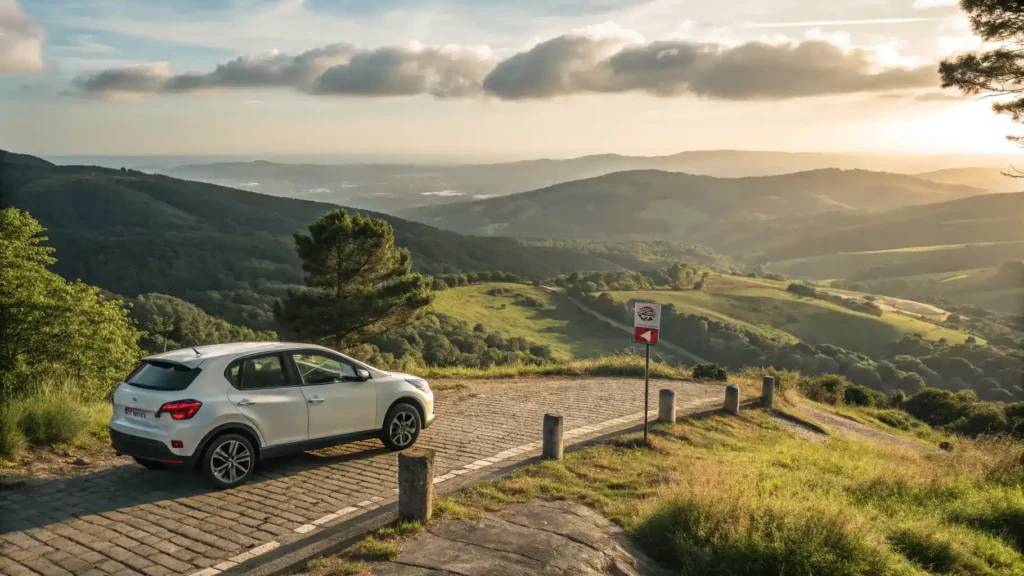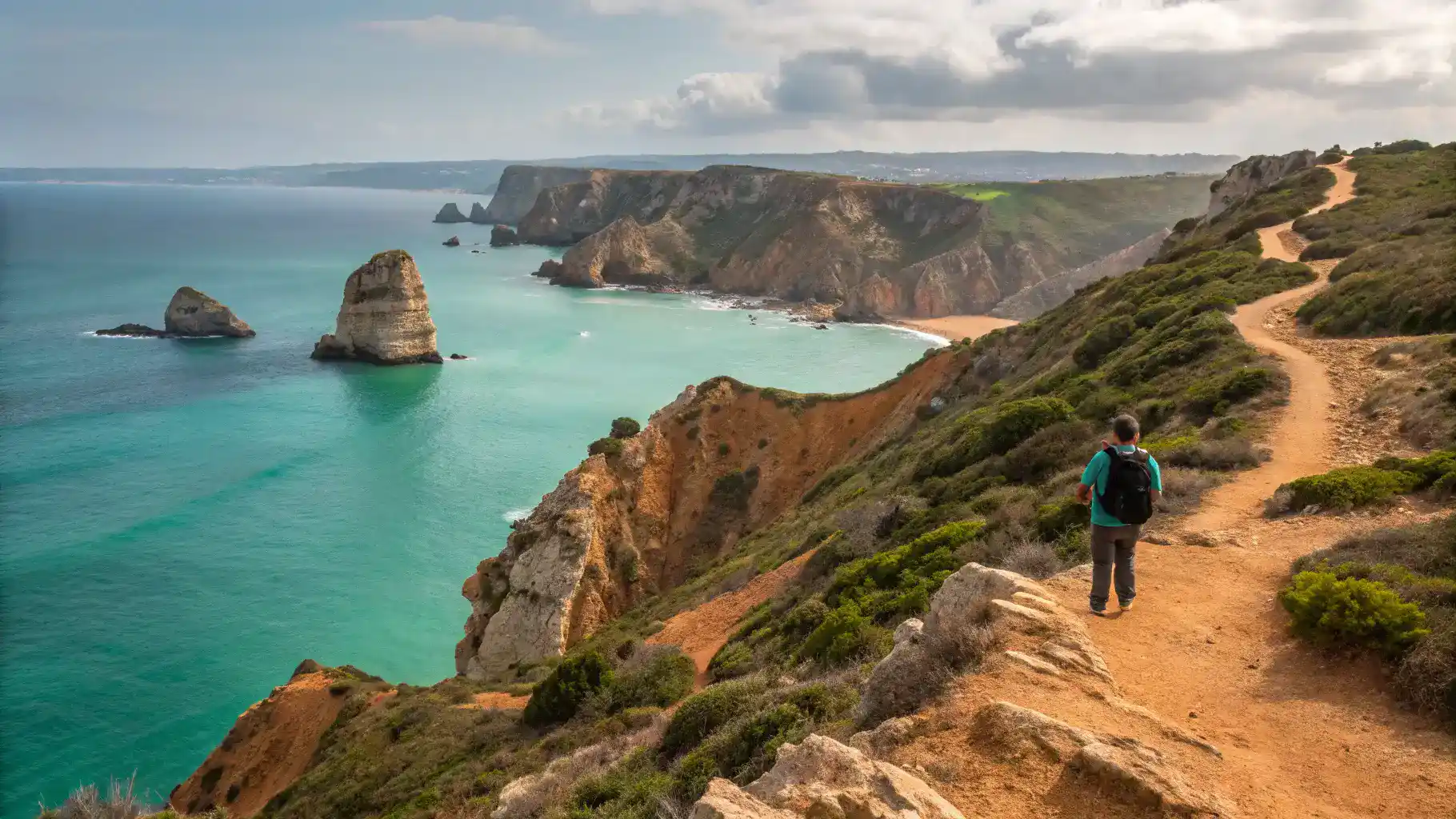Introduction
Portugal is a hiker’s paradise, boasting diverse landscapes that range from stunning coastal trails to majestic mountain peaks. Whether you’re trekking along the rugged cliffs of the Algarve or exploring the lush greenery of the Azores, hiking in Portugal offers a unique experience for adventurers of all levels. This guide aims to provide comprehensive information for planning your next hiking trip, ensuring you make the most of Portugal’s breathtaking trails and rich culture.
Table of Contents
Why Choose Portugal for Your Next Hiking Adventure?
Portugal is an ideal hiking destination for several reasons: diverse landscapes that cater to all preferences, easy accessibility to trails, favorable weather conditions year-round, affordability compared to other European destinations, and delicious local cuisine that fuels your adventures.

1. Planning Your Hiking Trip to Portugal
Planning your hiking trip to Portugal requires careful consideration of various factors. The country offers diverse landscapes, from coastal trails to mountainous regions, making it essential to choose the right time and style for your adventure. Understanding the local regulations and permits is also crucial for a smooth experience. Here’s a comprehensive guide to help you prepare for your hiking journey in Portugal.
1.1. Best Time to Go
The best time to hike in Portugal varies by region. Spring (March to May) and fall (September to November) are ideal for most trails, offering mild weather and fewer crowds. Summer (June to August) can be hot, especially in the south, while winter (December to February) may bring rain and cooler temperatures, particularly in the north.
1.2. Choosing the Right Hiking Style
Decide between self-guided and guided tours based on your experience level. Self-guided hikes offer flexibility, while guided tours provide local insights. Consider day hikes for a quick adventure or multi-day treks for a deeper exploration. Coastal hikes offer stunning ocean views, while mountain trails provide challenging terrains.
1.3. Essential Permits and Regulations
Some trails in Portugal may require permits, especially in national parks. Research specific areas beforehand. For up-to-date information on permits and trail access within protected areas, refer to the Instituto da Conservação da Natureza e das Florestas (ICNF) , Regulations often include staying on marked paths and respecting wildlife. For more information, contact local authorities or park services to ensure compliance with all rules.
Top Hiking Regions in Portugal
Portugal offers diverse hiking experiences across its stunning landscapes. From coastal trails to mountainous terrains, each region has unique features that cater to all hiking enthusiasts. Here are the top hiking regions in Portugal.
Algarve: Coastal Trails and Cliffside Views
The Algarve is famous for its breathtaking coastal scenery. The Rota Vicentina includes the Fisherman’s Trail and Historical Way, Official information on the Rota Vicentina network can be found , showcasing dramatic cliffs and pristine beaches. Key stops include Praia da Marinha and Lagos. Difficulty levels vary, with typical durations ranging from a few hours to several days, making it suitable for all skill levels.
Madeira: Volcanic Landscapes and Levada Walks
Madeira is renowned for its unique levadas, which are irrigation channels that offer stunning hiking trails. The hikes to Pico Ruivo and Pico do Arieiro provide panoramic views of the island’s volcanic landscapes. Lush forests and botanical gardens enhance the hiking experience, making it a paradise for nature lovers.
Peneda-Gerês National Park: Portugal’s Only National Park
Peneda-Gerês National Park boasts rich biodiversity and scenic beauty. Popular trails include ancient Roman roads and paths leading to picturesque waterfalls. Visitors can explore traditional villages, immersing themselves in the region’s cultural heritage while enjoying the natural surroundings.
Serra da Estrela: Mountain Hiking and Stunning Vistas
Serra da Estrela is Portugal’s highest mountain range, featuring glacial valleys and unique rock formations. The hiking trails around Torre, the highest point, offer breathtaking vistas. This region is perfect for those seeking challenging hikes and stunning landscapes.
3. Must-Do Hikes in Portugal
Portugal offers a diverse range of hiking experiences, from coastal trails to mountainous paths. Here are some of the best hikes in Portugal that every adventurer should consider.
3.1. Rota Vicentina: Fisherman’s Trail

The Rota Vicentina is a stunning coastal trail stretching over 120 kilometers. It consists of several stages, each showcasing breathtaking views of cliffs and the Atlantic Ocean. Highlights include the picturesque fishing villages and diverse wildlife. Accommodation options range from cozy guesthouses to campsites. Practical tips include checking tide schedules, locating water sources, and using navigation apps for guidance. Trail updates, downloadable maps, and GPS data are available.
3.2. Seven Hanging Valleys Trail
This trail features stunning coastal scenery and unique geological formations. Hikers can enjoy breathtaking viewpoints and pristine beaches along the route. The trail is moderately difficult, taking about 3 to 4 hours to complete, making it suitable for most fitness levels.
3.3. Paiva Walkways (Passadiços do Paiva)
The Paiva Walkways consist of wooden paths along the Paiva River, offering dramatic landscapes and stunning river views. The construction is eco-friendly, designed to minimize environmental impact. This hike is relatively easy, making it accessible for families and casual hikers.
3.4. Hike to the Sanctuary of Nossa Senhora da Peneda
This beautiful mountain hike leads to a significant religious site. The trail offers spectacular viewpoints and is moderately challenging, making it ideal for those seeking both spiritual and scenic experiences.
3.5. Hike of Black Stones
This hike takes you along basalt slopes, combining mountain, beach, and forest scenery. The trail features stunning viewpoints and is moderately difficult, perfect for those looking for a diverse hiking experience.
4.Gear and Preparation:What to Pack for Your Hike
Preparing for hiking in Portugal requires careful consideration of your gear and essentials. Packing the right items ensures a safe and enjoyable experience on the best hikes in Portugal. Here’s a comprehensive guide to what you should bring.
4.1.Essential Hiking Gear
-Hiking boots/shoes: Choose sturdy, comfortable footwear suitable for various terrains.
-Backpack: Opt for a size that fits your needs, with features like hydration reservoirs and pockets.
-Clothing layers: Wear moisture-wicking materials to stay dry and comfortable.
-Rain gear: Pack a lightweight, waterproof jacket to protect against sudden showers.
-Sun protection: Don’t forget a hat, sunglasses, and sunscreen to shield yourself from UV rays.
4.2.Navigation and Safety
-Map and compass/GPS device: Essential for navigating hiking trails Portugal.
-First-aid kit: Always carry a basic kit for minor injuries and emergencies.
-Emergency whistle: Useful for signaling in case you get lost.
-Headlamp or flashlight: Important for visibility during early morning or late evening hikes.
4.3.Food and Hydration
-Water bottles/hydration reservoir: Stay hydrated throughout your hike.
-Snacks: Bring energy bars, nuts, and dried fruit for quick energy boosts.
-Tips on finding water sources: Research trails in advance to locate water sources along the route.
5. Staying Safe on the Trails
Hiking in Portugal can be an exhilarating experience, but safety should always come first. Here are essential tips to ensure a safe adventure.
5.1. Weather Conditions
Monitor weather forecasts regularly. Be prepared for sudden changes in weather. Avoid hiking during extreme heat or storms to ensure your safety.
5.2. Trail Navigation
Stay on marked trails to avoid getting lost. Avoid taking shortcuts that can lead to dangerous areas. Learn basic map reading and compass skills for better navigation.
5.3. Wildlife Encounters
Be aware of potential wildlife hazards like snakes and wild boars. Maintain a safe distance from all wildlife. Avoid feeding animals to prevent dangerous encounters.
5.4. Leave No Trace
Pack out all trash and dispose of it properly. Minimize your impact on the environment to preserve the beauty of Portugal’s hiking trails.
6. Getting To and Around the Trails
Accessing Portugal’s hiking trails is straightforward with various transportation options available.
6.1. Transportation Options
Consider renting a car for flexibility. Use public transport like buses and trains for budget-friendly travel. Taxis and ride-sharing services are also available for convenience.
6.2. Parking
Research where to park near trailheads. Check parking fees and availability in advance to avoid surprises.
6.3. Getting to the Start and End Points of Trails
Utilize public transportation to reach trailheads. Plan your route ahead of time for a smoother experience.

7. Conclusion
In summary, hiking in Portugal offers breathtaking experiences. Explore the diverse trails and immerse yourself in nature. Book your trip today and share your adventures!
8. FAQs (Frequently Asked Questions)
What is the best time of year to hike in Portugal?
The best time to hike in Portugal is generally during the spring (April-May) or autumn (September-October) when the weather is mild, and the crowds are smaller.
Are there any dangerous animals I should be aware of while hiking in Portugal?
Portugal has some wildlife, but encounters are rare. Be aware of snakes (vipers) and wild boars in some areas. Avoid approaching or feeding wild animals.
Do I need a permit to hike in Peneda-Gerês National Park?
You do not need a general permit to hike in Peneda-Gerês National Park. However, check for specific regulations on certain trails.
Are there accommodations available along the Rota Vicentina Fisherman’s Trail?
Yes, there are various accommodation options along the Rota Vicentina, including guesthouses, hostels, and small hotels. Book in advance, especially during peak season.
Can I hike in Portugal without speaking Portuguese?
Yes, English is widely spoken in tourist areas of Portugal. However, learning a few basic Portuguese phrases can enhance your experience, particularly in rural areas.


